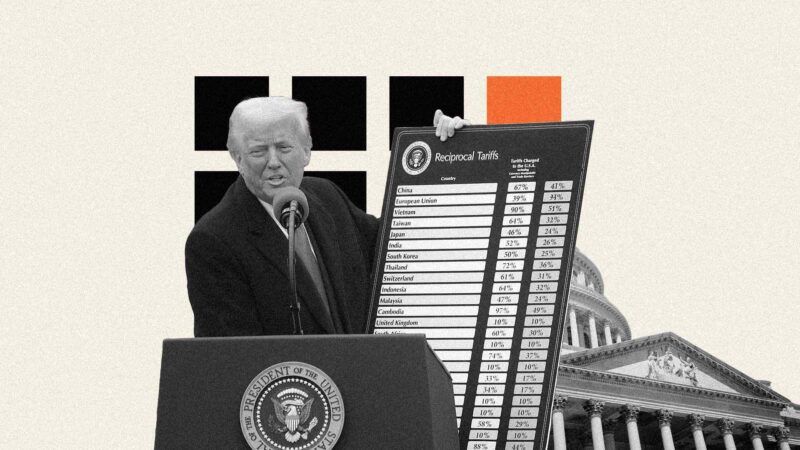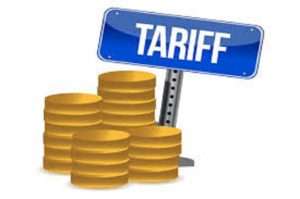Defending the Court of International Trade Ruling Against Trump's Tariffs—A Reply to Estreicher and Babbitt [Updated]
Estreicher and Babbitt are right to conclude that Trump's tariffs violate the nondelegation doctrine, but wrong to reject other arguments against them.


In a recent Just Security article, NYU law Prof. Samuel Estreicher and attorney Andrew Babbitt criticize the May 28 Court of International Trade ruling against Trump's IEEPA tariffs, in VOS Selections, Inc. v. Trump, a case brought by the Liberty Justice Center and myself, on behalf of five small businesses harmed by the tariffs. The case is now on appeal before the US Court of Appeals for the Federal Circuit.
Estreicher and Babbitt (EB) actually agree with us and the court that the tariffs are illegal! They just don't like much of the CIT's reasoning, and would prefer a ruling based on nondelegation doctrine. In this respect, they are similar to some previous critics of the ruling who support the result, but object to the reasoning, most notably John Yoo. He takes the exact opposite position: that CIT should have relied on the statutory text, rather than nondelegation and major questions doctrine (see my response to Yoo here).
EB overlook the fact that the CIT ruling did in fact rely, in part, in parton nondelegation. In addition, the other grounds for the court's decision are much stronger than they realize.
EB agree with us that Trump's interpretation of IEEPA grants the president virtually unlimited power to impose tariffs, and also agree that such boundless delegation violates constitutional constraints on delegation of legislative power to the executive. They chide the CIT for supposedly avoiding this constitutional issue. But CIT did not avoid it! The court's decision specifically states that "any interpretation of IEEPA that delegates unlimited tariff authority is unconstitutional." It clearly relied on this point as an additional reason to rule against the administration.
The CIT also relied on the closely related major questions doctrine (MQD), which requires Congress to "speak clearly" when authorizing the executive to make "decisions of vast economic and political significance." EB complain that MQD may not apply here, because it is not clear that it applies to presidential actions, as opposed to those of administrative agencies. But there is no good reason to exempt the president from MQD scrutiny, and three federal circuit courts have ruled that way. This point is further reinforced by the Supreme Court's increasing embrace of "unitary executive" theory, under which the president is entitled to near-total control over executive branch subordinates, thus making distinctions between them illusory. For more on this point, see our appellate brief in the case (pp. 51-53).
EB also note that MQD applies with greater force when an assertion of executive power is unprecedented. But, as they acknowledge, no previous president has ever used IEEPA to impose tariffs at all, much less on a scale large enough to start the biggest trade war since the Great Depression. It is true, as they emphasize, that President Nixon used IEEPA's predecessor statute, the Trading with the Enemy Act (TWEA), to enact more limited tariffs, and this was upheld by the predecessor court to Federal Circuit in United States v. Yoshida International Inc. (1975). But the Yoshida court specifically stated it was not endorsing unlimited tariff authority. It emphasized that the Nixon tariffs were linked to the preexisting tariff schedule set by Congress, and that "[t]he declaration of a national emergency is not a talisman enabling the President to rewrite the tariff schedules." It even noted that to "sanction the exercise of an unlimited [executive] power" to impose tariffs "would be to strike a blow to our Constitution."
Thus, Yoshida actually refused to interpret TWEA as endorsing the kind of unlimited tariff authority Trump asserts under IEEPA. Moreover, we cannot assume that the even the more limited tariff authority Yoshida allowed continues under IEEPA, merely because the latter statute used wording similar to TWEA. Congress wanted IEEPA to be more limited than TWEA, and specifically emphasized it could only be used to address an "emergency" that amounts to a "unusual and extraordinary threat…. to the national security, foreign policy, or economy of the United States" (concepts that were supposed to be narrowly defined and not a "normal" state of affairs). Trade deficits - the rationale for the Liberation Day tariffs at issue in our case - are neither an emergency, nor extraordinary, nor unusual, nor a threat (for more on these points see the excellent amicus brief in our case, filed by a cross-ideological group of leading economists).
Finally, it is worth emphasizing that IEEPA doesn't actually authorize tariffs at all. The statute does not even mention the word "tariff" or any synonym such as "duty" or "impost." All it allows is the power to "regulate" certain international economic transactions. Regulation and taxation are historically distinct powers, separately listed in the Constitution. The CIT decision deliberately chose not to address this issue. But in the Learning Resources case, decided a day later, Judge Rudolph Contreras of the US District Court for the District of Columbia (DDC) did address this question and correctly ruled IEEPA doesn't allow tariffs.
EB argue that Judge Contreras got this issue wrong, but they have no good reason for that claim, other than just relying on the Yoshida precedent (which itself provides little analysis justifying its conflation of taxation and regulation). If "regulate" inherently implies a power to impose taxes or tariffs, that would render the constitutional grant of power to Congress to "lay and collect… Duties, Imposts and Excises" superfluous, since the Constitution also gives Congress the power to "regulate" international commerce. Moreover, it would mean all of the many statutes that give some federal agency a power to "regulate" an activity also give it the power to impose taxes, which would be a massive expansion of executive branch taxation authority.
In addition, as Judge Contreras points out, this interpretation of IEEPA would render it unconstitutional, because the language of the statute applies to regulation of exports, as well as imports:
IEEPA provides that the President may "regulate . . . importation or exportation." 50 U.S.C. § 1702(a)(1)(B). The Constitution prohibits export taxes. See U.S. Const. art. I, § 9, cl. 5 ("No Tax or Duty shall be laid on Articles exported from any State."). If the term "regulate" were construed to encompass the power to impose tariffs, it would necessarily empower the President to tariff exports, too. The Court cannot interpret a statute as unconstitutional when any other reasonable construction is available. See Nat'l Fed'n of Indep. Bus. v. Sebelius, 567 U.S. 519, 563 (2012).
Given these realities, there is every reason to confine Yoshida's reasoning to the narrow range of tariffs it upheld under TWEA, and not apply it to IEEPA at all. Even if Yoshida does apply, it explicitly rejects the kind of sweeping tariff authority claimed by the Trump Administration.
In sum, I completely agree with EB that it would be good if appellate courts struck down Trump's IEEPA tariffs under the nondelegation doctrine. Indeed, I have said as much since my very first piece on the subject, back in February (the post that eventually led to the filing of our case).
But there are also multiple additional reasons to rule against the tariffs, including 1) IEEPA doesn't authorize tariffs at all, 2) trade deficits are not an "emergency" or an "unusual and extraordinary threat" 3) deficit-related tariffs are now governed by the Trade Act of 1974 (a point noted by the CIT), not IEEPA, 4) the major questions doctrine, and 5) constitutional avoidance (relied on by both CIT and Judge Contreras). We cover all these in much more detail in our Federal Circuit brief.
UPDATE: EB also criticize the part of the CIT decision striking down Trump's fentanyl-related IEEPA tariffs imposed on Canada, Mexico, and China, which held that the tariffs in question do not actually "deal with" the fentanyl problem (IEEPA states that the statute can only be used to "deal with" the "unusual and extraordinary threat" it is invoked to address). This part of the decision relates not to our case, but to that brought by twelve state governments (decided in the same ruling).
EB argue the CIT's reasoning on "deals with" would inhibit all other efforts to use IEEPA sanctions as leverage, such as their use against Russia's invasion of Ukraine. Not so. There is an obvious difference between the Russia sanctions and Trump's fentanyl tariffs. The Russian government is obviously responsible for its attack on Ukraine and pressuring Russia to stop its own wrongdoing is an obvious way of "dealing with" the threat it poses. In addition, reducing the flow of money to the Russian government reduces the resources available to it, and makes it harder for Vladimir Putin to continue his war. . By contrast, the flow of fentanyl from Canada to the US is negligible and pretty obviously not caused by the Canadian government; that from Mexico is overwhelmingly by US citizens returning home, and also not caused by the Mexican government. Thus, the fentanyl tariffs are not meaningfully dealing with the problem that supposedly justifies them, even assuming that cross-border drug smuggling qualifies as an "unusual and extraordinary threat" (which it doesn't, as such smuggling is a longstanding and virtually inevitable consequence of the War on Drugs, which predictably creates large black markets).
